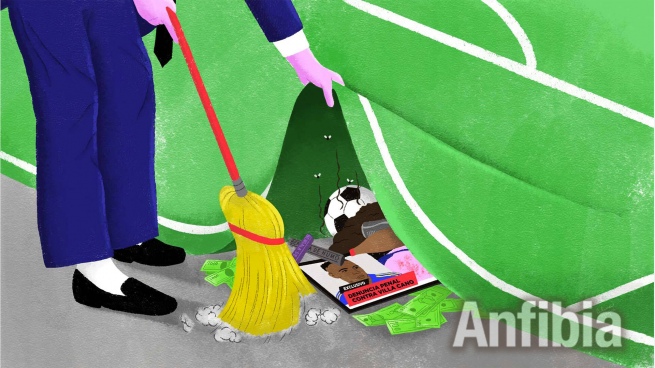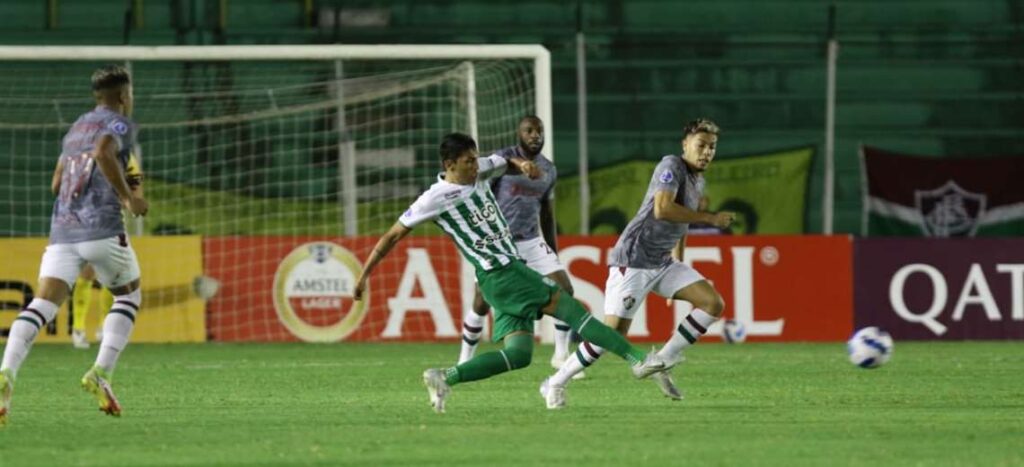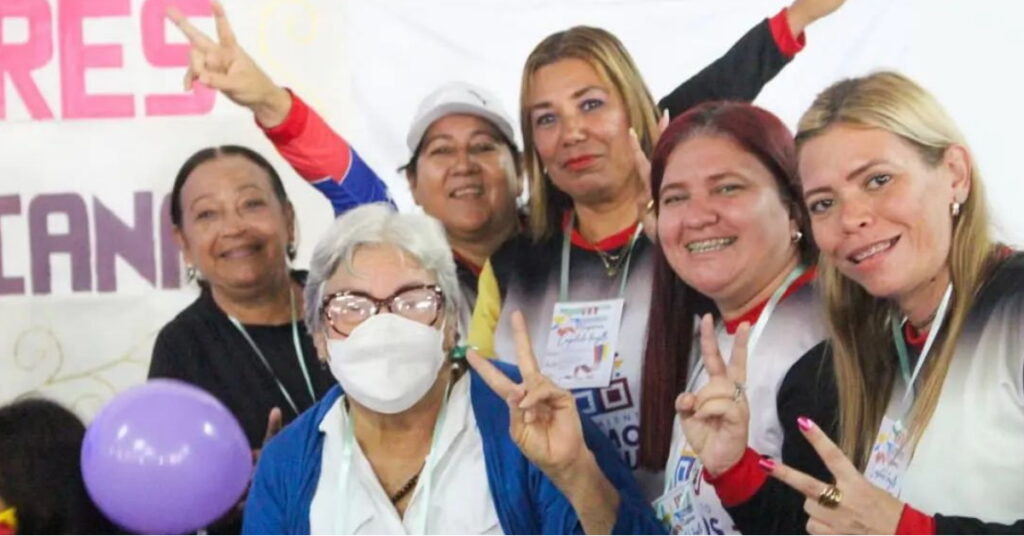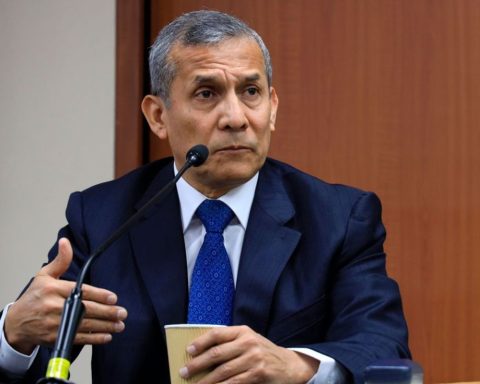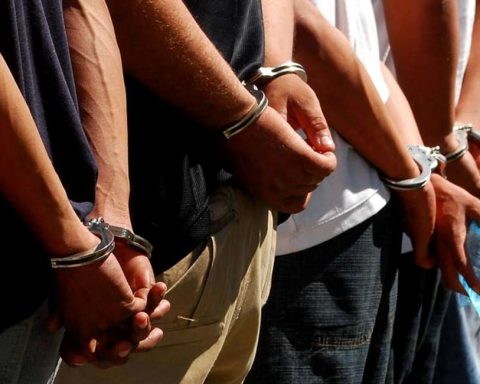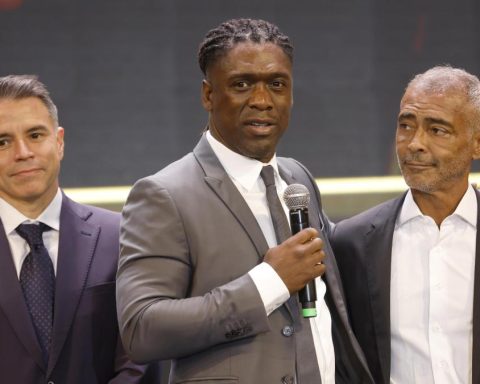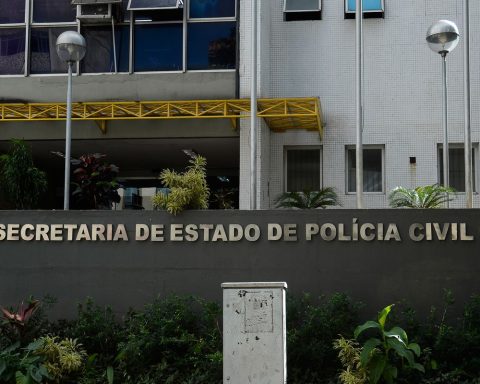The complaint made by a woman for acts of gender-based violence (GBV) against the soccer player from Boca Sebastián Villa Cano once again puts a debate in the eye of the public conversation: how should institutions deal with this type of incident? ?
On the one hand, the requirement falls on the judiciary regarding the use of criminal law. On the other, about what a social and sports institution should do -such as a first division club- when a member of its squad faces a complaint of violence (which is also not the first). The responses required from these two institutions have different objectives but replicate the same spirit. The protocols and tools that are proposed to act in parallel to the administration of criminal justice coincide with one objective: to punish.
Beyond the undoubted duty of the State -embodied in this instance in UFI No. 3 of Esteban Echeverria- to investigate, to sanction the reported acts, and to support and protect women who experience violence, this case invites us to think about how to go through other paths, what actions could enable an institution whose main purpose is not to punish.
Can we avoid the continuous repetition of punitive proposals? What other forms of awareness exist that allow us to operate cultural change? What different conversation can be opened in a social and sports institution that has multiple resources and a massive reach to a male audience? How do we create ways of approaching conflicts oriented towards transformation, responsibility, reparation and prevention?
This is an attempt to look into the eyes of the punitive overflow that sometimes governs our imagination, and offer an alternative even in the face of a case where there are plenty of provocations to make us very angry. It no longer makes sense to repeat in all areas of social interaction the same dynamic of criminal law that revictimizes and always leaves us with a bitter taste but does not prevent, repair or transform anything or anyone.
***
Today we are talking about a Boca player, but he is not the first nor will he be the last. We have seen this situation repeated for years, dancing to the beat of the patrol car’s siren. The rapid reaction on social networks once again proposes a punitive solution and the reluctance of the other side to take responsibility for what happened.
Once again, the social conversation is reiterated. We crowded in front of the labyrinth doors. We hope that the institutions, even those that have the opportunity to explore and develop other approach tools, resolve the conflict through a sanction (usually suspension or expulsion).
At times, that seems like the only way out. However, with criminal proceedings underway, a window of opportunity opens to think about what other approach a football club can take. Avoiding extremes, that the institution neither fixes nor punishes but that it takes charge promoting both institutional and individual responsibility.
References such as Angela Davis in the United States or the feminist lawyers Haydee Birgin and Ileana Arduino in Argentina have already written so much about the failure of the prison institution. One of the most patriarchal institutions of the State, where people receive cruel, inhuman and degrading treatment, are beaten and abused, cannot be the way out of gender-based violence. Or at least it doesn’t have to be the only way out.
***
We know the limits and ineffectiveness of punitive solutions to resolve the existing social conflict. That is why we have the right to think about what other cracks to weave strategies. A sports institution that has access to an immense number of men and sufficient resources (such as an annual budget of 7 billion pesos and that projects a surplus of 124 million pesos by 2022) is fertile ground to develop another way of taking charge that does not It’s just punishment.
Exacerbated masculinity is a risk factor for both men and those who associate with them. It is hard to reach and easy to lose. It is threatened all the time and is shaped through contact with violent experiences that generate trauma and suffering that do not usually find channels of channeling. They cause harmful reactions such as problematic consumption, traffic accidents, street fights, gender-based violence, among others.
A man who commits acts of violence is not an island. He is a subject integrated into a social body that is damaged. All of society can choose to be part of the solution. I know that sometimes it is difficult to open this topic to men; exacerbated masculinity is nothing more than the disguise that a subject full of vulnerability adopts. The wolf violently defends his threatened status so as not to face a challenging reality: he is also Little Red Riding Hood. And the greater the resistance to recognizing one’s own human condition of vulnerability, the crueler the bonds will be. Do we want that world?
Many times, men who become fixed in obstinate postures sustain them through complex social processes. The plot is woven with the participation of institutions, family ties, friends, other couples and legal professionals who believe that supporting a man, when these types of facts come to light, is trying to counteract the story by making it less relevant, squandering the complainant and managing with strong symbolic gestures who we should bring to reflection. Thus, the problem worsens and opportunities are lost to stop the escalation of violence.
The complexity of the problem is such that punishment tools are useless. The challenge is to work with the person from another angle and place an accompanying limit. That it recognizes that the public-private division is a fiction and that it is in charge of facilitating and conducting an individual and group reflection to prevent new facts, with the collective impact that this process of taking place in one of the most important football clubs in the world can have. world.
The core of this device must be in the transformation, not in the signaling. It must recognize that whoever commits acts of violence has a problem that must be addressed and is not a monster to be excluded, beyond the result of the criminal process that will impose exclusion due to the eventual result of deprivation of liberty. Because the failure is systemic, although it takes the lives of certain individuals with whom we must work.
An experience related to the implementation of this type of device exists in the State of Buenos Aires. The Directorate for the Promotion of Masculinities for Equality, within the Ministry of Women, Gender Policies and Sexual Diversity, for example, launched a telephone line for attention and referral of men: the Let’s Talk Line (0221-602 4003) works in Within the framework of the Community Assistance Service of the College of Psychologists of La Plata, it also has face-to-face spaces. There are other similar experiences in Córdoba, Neuquén and Santa Fe.
These devices must be made up of specialized teams that mobilize an individual reflective process and that, for example, can culminate in an offer of relevant social economic support used to promote gender equality through sport. The other possible approach is preventive at the group level. In this way, the institution will be able to put out fires before they reach irreversible extremes. It is an opportunity to listen and contain these men responsibly.
The opening, support and validation of masculinity spaces is a key piece to open new outlets to process the conflict. It enables the dialogue that the criminal process blocks and allows us to challenge ourselves to outline, jointly, the way out of the jam in which we are. Take responsibility for the construction of this subjectivity and make the attempt accompanied by the wolf to return to human form.
Taking charge is an ethical and legal mandate for the sports institution, but there are also important business reasons that must be put on the table. By not working consciously to de-escalate and prevent violence, the problems are likely to worsen and the chances of losing freedom increase. In the Villa case this is clearly seen. Boca lost the opportunity after the first complaint. Now he could lose a player in whom he invested a lot of money because he will face a custodial sentence. This affects the possibility of selling and there will be no symbolic gesture of support that can reverse the situation.
This is not the battle of the sexes, it is the revolution of the genres. Our goal is to stop reproducing wolves and Little Red Riding Hoods to make way for healthy forms of sexual-affective bonding, where intimacy is a place of enjoyment and growth and not the repetition of scenes full of trauma and violence.
